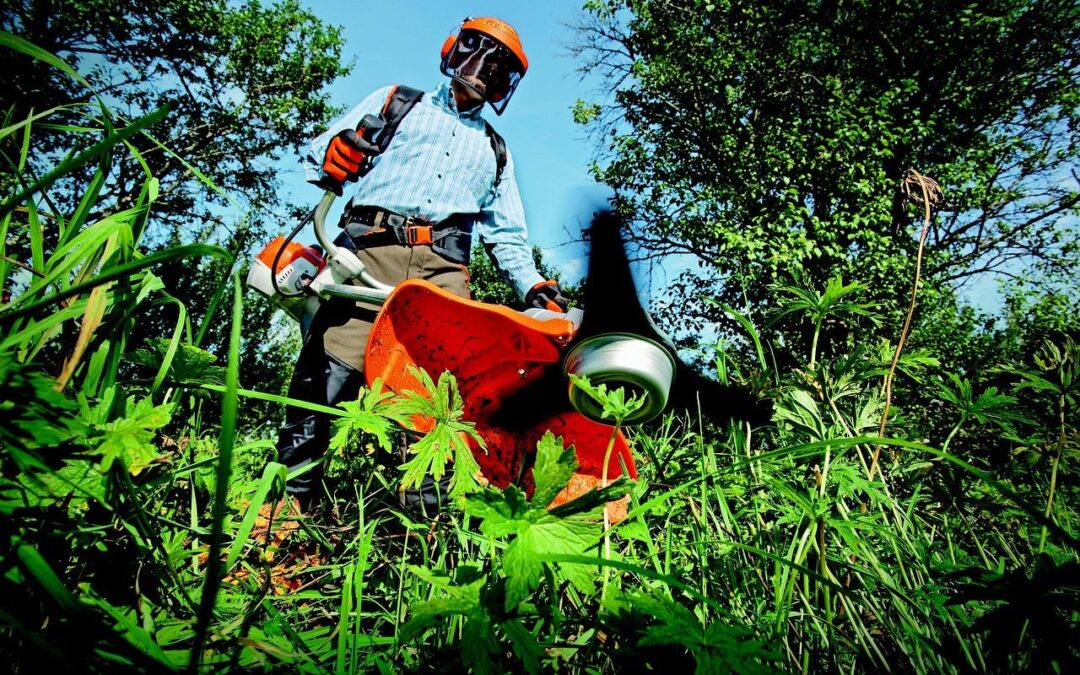Few things can ruin a day outdoors, like an unexpected encounter with poison ivy. The plant’s well-known oil, urushiol, can cause painful rashes and irritation that last for weeks. While some people attempt to handle poison ivy on their own, improper removal can make things worse by spreading the oil to other areas or even causing respiratory issues if burned.
So, when is it time to call in a professional for poison ivy removal? Here, we will go over the situations in which doing it yourself may not be sufficient and why it is in your best interest to call in the pros.
Understanding the Risks of Poison Ivy
Before calling a professional, it’s important to understand why poison ivy is such a formidable plant. Poison ivy, along with its relatives poison oak and poison sumac, contains urushiol, an oily resin that causes allergic reactions in about 85% of people. Contact with the leaves, stems, roots, or even contaminated tools can lead to:
- Itchy, blistering rashes that can last for weeks
- Swelling and irritation if touched
- Severe reactions if the plant is burned, releasing urushiol into the air and potentially affecting the lungs
- Spread of the oil to clothing, pets, and surfaces, prolonging exposure
Given these risks, improper handling can quickly turn a minor issue into a major problem.
When is DIY Removal an Option?
For those with minimal exposure and a small patch of poison ivy, careful DIY removal may be an option. If you decide to tackle the issue yourself, follow these precautions:
- Wear protective gear: Gloves, long sleeves, long pants, boots, and even safety goggles can help prevent exposure.
- Remove carefully: Dig up the plant by the roots, ensuring all parts are contained and properly disposed of in sealed plastic bags.
- Clean thoroughly: Wash any tools, clothing, and exposed skin with soap and water to remove lingering oils.
- Avoid burning the plant: This is one of the biggest mistakes people make, as it releases toxic fumes that can cause severe respiratory issues.
While these steps work for small patches, there are situations where calling a professional is the better choice.
When to Call a Professional for Poison Ivy Removal?
1. The Infestation is Large or Spreading
If you have a significant poison ivy problem covering large portions of your yard, professional removal is the safest and most efficient solution. Professionals have the tools and experience to remove large patches without spreading the oil to unaffected areas.
2. The Poison Ivy is Near Structures or Public Areas
Poison ivy growing near your home, fence line, or public pathways poses a risk not just to you but to visitors, children, and pets. Professionals can eliminate the problem while ensuring that no harmful residue is left behind.
3. You’ve Had a Severe Reaction in the Past
For those highly sensitive to poison ivy, even minimal exposure can cause extreme allergic reactions. If you’ve had a severe rash or required medical attention in the past, it’s best to stay far away and leave the removal to experts.
4. The Plant is Intertwined with Other Vegetation
When poison ivy is growing among other plants in a garden, landscaping, or trees, removal becomes tricky. Professionals can distinguish between safe and hazardous plants while ensuring that poison ivy is fully eradicated.
5. You Suspect Poison Ivy Roots Have Spread Underground
Poison ivy has an extensive root system that can allow it to resurface even after cutting or pulling the visible parts. If you notice regrowth or suspect that the roots have spread underground, professional-grade herbicides or specialized removal techniques may be necessary.
6. You Want to Prevent Future Growth
Simply cutting down poison ivy isn’t always enough—its aggressive nature means it can quickly return. Professionals use targeted treatments that eliminate the plant entirely and prevent future outbreaks, saving you time and frustration.
7. You’re Concerned About Safe Disposal
One of the biggest challenges in poison ivy removal is safe disposal. Tossing the plant into a compost bin or trash can spread the toxic oils. Professionals follow proper disposal protocols to ensure that urushiol doesn’t linger and cause problems.
An Expert Method for Removing Poison Ivy
Professional poison ivy removal specialists use a combination of manual extraction, eco-friendly herbicides, and long-term prevention strategies. Unlike DIY methods, which may only provide temporary relief, professionals ensure that the problem is handled thoroughly and safely.
In addition to removing the visible plant, professionals:
- Identify and treat hidden root systems
- Apply targeted treatments that don’t harm surrounding vegetation
- Dispose of the plant safely to prevent further contamination
- Provide recommendations for preventing regrowth
For those dealing with frequent poison ivy outbreaks, consulting with a professional can help develop a long-term strategy for keeping your property free of the irritating plant.
Takeaways
In rare instances, it’s possible to remove poison ivy yourself. However, there are many more instances where it’s best to call a professional. Calling an expert guarantees that poison ivy is eradicated successfully and without needless exposure, regardless of the type of infection, frequent regrowth, or high-risk area. Seek the assistance of a reliable poison ivy removal expert who has the necessary equipment and training to deal with a chronic infestation.

Recent Comments